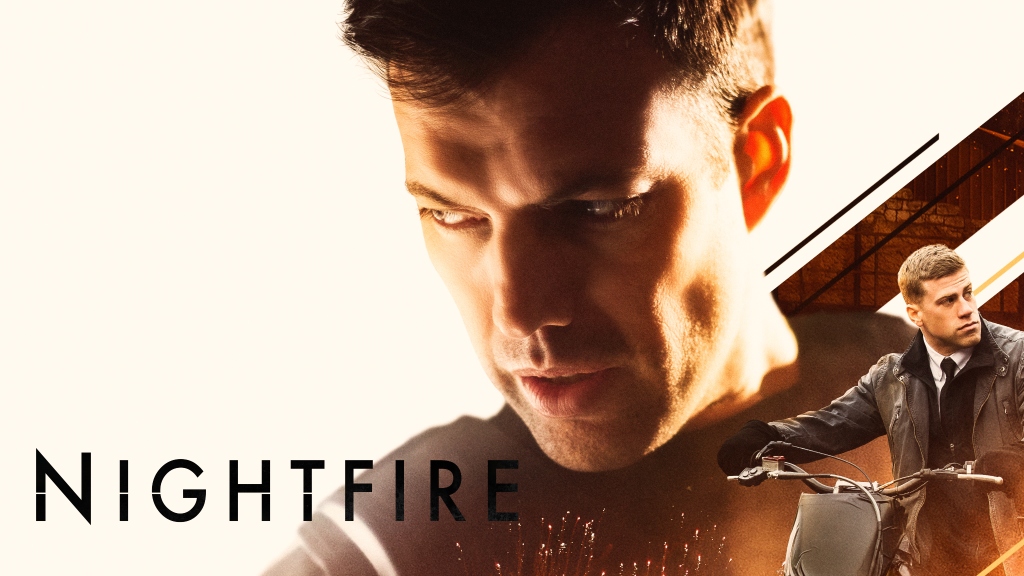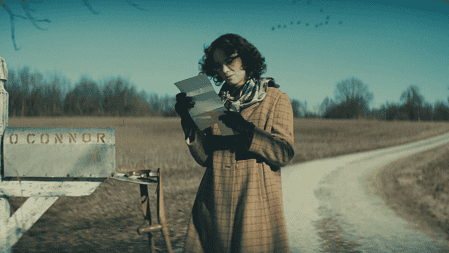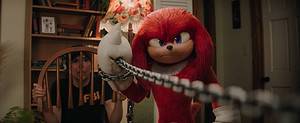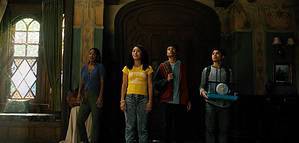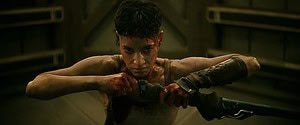EXCLUSIVE INTERVIEW with BRANDO BENETTON
Brando Benetton, the USC grad who turned his thesis project into a major action film (“Nightfire”, available on Hulu and Amazon Prime May 1), talks about the film’s exciting journey and his love of Bond and Baker.
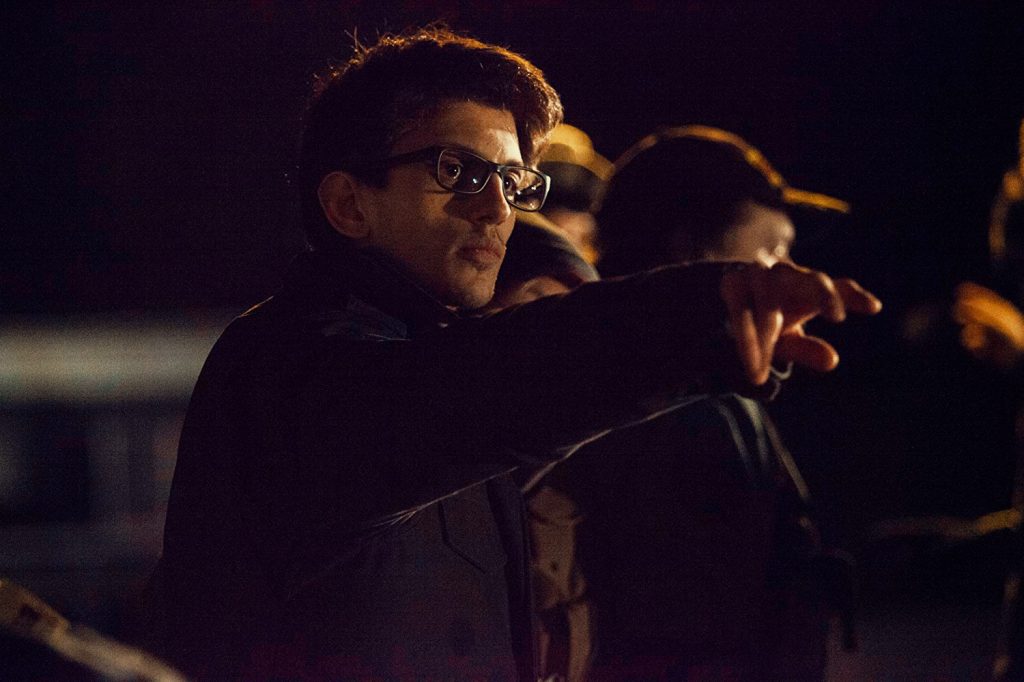
Guess it goes without saying… you like your spy movies, sir?
Let’s begin by geeking out! Yes, absolutely. It may have started with Bond (I have hours of Bond-inspired short films I’d shoot at age 8/9), but frankly our love for spy movies has grown over the last ten years also because of the amazing work done by Brad Bird and Christopher McQuarrie on the Mission: Impossible franchise, which also deeply understands how to blend action and emotion into one-of-a-kind experiences.
I was lucky enough to visit Bond director John Glen this past summer, and we spent a morning discussing the 007 franchise and the way it impacted audiences in the ’60/70/80s on an emotional level. Back then, people couldn’t travel as much—and I think the voyeuristic element of going to Italy, Cuba and Morocco all in the span of a single movie experience was deeply exciting in a way. Almost like a deal the filmmakers were making with the audience.
Can you remember your first one? I’m guessing it was a Bond?
The World is Not Enough, 1999. I was seven years old when it came out in theaters.
Who was YOUR Bond growing up?
Pierce Brosnan. I think what’s fascinating about people’s relationship with different Bonds is going back to everyone’s first memories with the series. The first film they remember seeing is usually the face they associate with the character—even as the years go on. That said, I must admit I have a soft spot for Timothy Dalton.
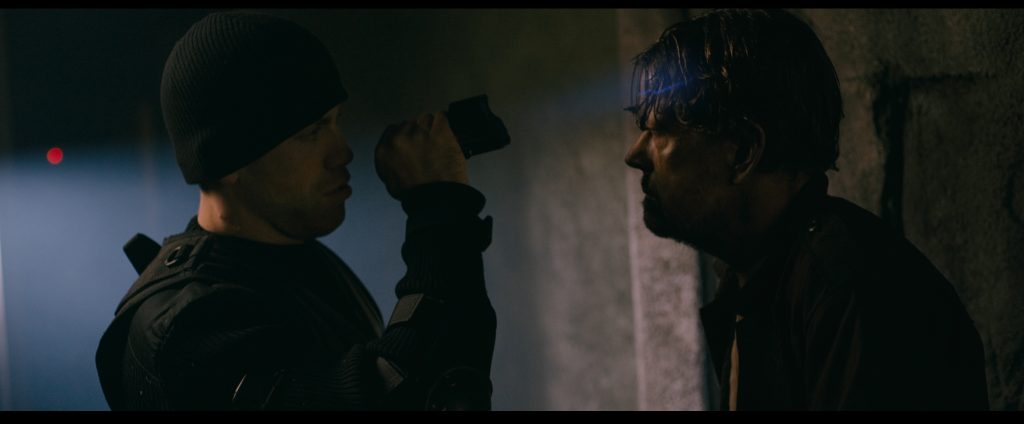
And do you have a favourite Bond film?
I must say Skyfall. Javier Bardem plays a truly haunting villain, Roger Deakins delivers such beautiful cinematography—and I think all around every single department head on the movie, whether they knew it or not, was firing on all cylinders.
What’s interesting about the variety of the Bond stories over the years is that Neal Purvis and Robert Wade have been writing the screenplays for every movie since 1999. So even though you have the same writers (and sometimes the same director), the range in quality recently for the series is often all over the place. Needless to say, these are not easy scripts to write, nor they are easy movies to make. So when you capture lighting in a bottle… you get Skyfall.
Can you speak a little about homages or influences – In terms of direct influences on “Nightfire”?
Absolutely! You try not to borrow too heavily from one movie, because the story for Nightfire needed to stand on it’s own two feet. I’d say the most I learned and was influenced by is the way spy movies use narrative structure to evenly sprinkle action sequences throughout a single movie. There’s a reason all spy movies open with an action sequences—we spoke about the agreement you have with the audience and the opening for a movie usually sets the “rules of the game.” So I would literally graph out, minute by minute, when action was introduced in Bond and Mission: Impossible movies and make sure that it translated similarly for us, for a film experience that was constantly trading moments of action, information, and emotion.
And was the intention to write a fully-fledged big screen blockbuster initially before you scaled it back to a short?
Believe it or not, this already felt like as bold undertaking as a nearly hour-long film, especially for a group of film students in their early-20’s who had never chased a project this ambitious. Many tried to discourage us, urging us to either scale things back or “water the story” down to reach a 60/70 minute runtime. We were confident in the fact that the film needed to be as long as the characters and story demanded it, and that the post-production process would take us in unexpected directions regardless.
Is this something you can see developing as a feature later though?
Absolutely, or even a TV show. We have a lot of ideas that did not make it into the film—and not only action sequences but storylines and the expansion of great characters who barely had time to shine in this version of the film. European-set espionage stories truly lend themselves to the cinematic, which is why I believe we’ve barely scratched the surface.
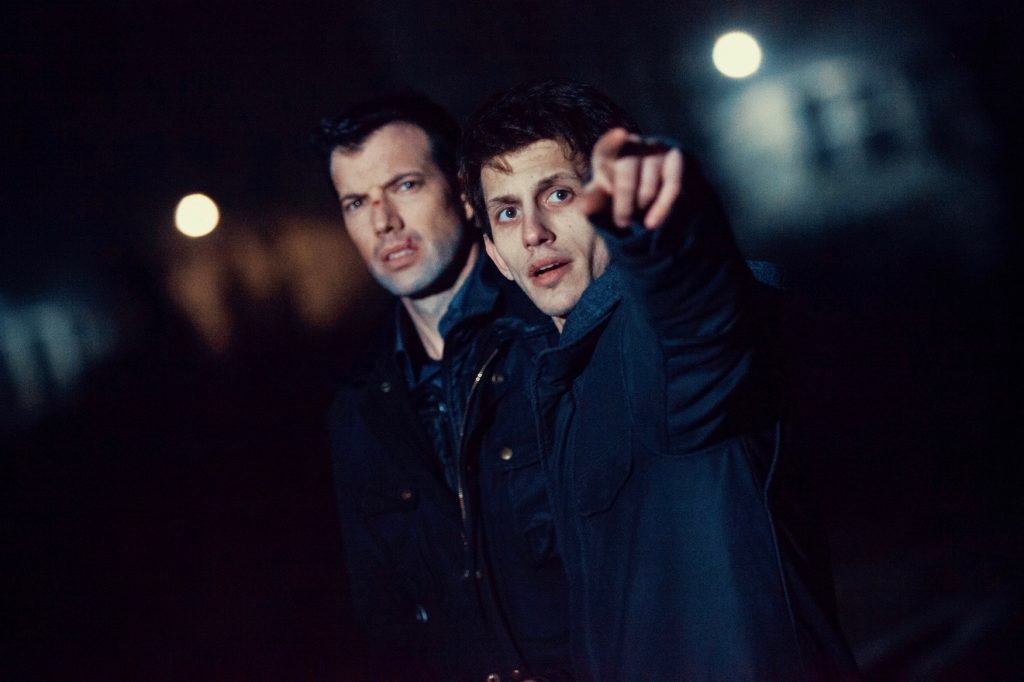
And have you already promised Dylan Baker a role?
There’s no need to promise him anything: Dylan Baker’s persona is baked into the DNA of this story, and we can’t imagine doing anything without him moving forward. He’s an extremely generous collaborator, and to watch him at work was a masterclass in acting and directing—every single scene on set.
He’s great in this. Was their a role in particular you loved of his that made you think of him for the part?
I agree, this movie wouldn’t be the same without his performance! I think what’s wonderful about Dylan is that throughout his career he’s played opposite sides of the law. He’s portrayed FBI agents or criminals, mastering both sides of the moral spectrum with such confidence. Because of that, the audience steps into the movie with pre-determined expectations, and we wanted to take advantage of that and subvert the way his role unfolds in the story.
His character in Nightfire, Olivetti, needed an actor who could bring layers upon layers of nuance, and because audiences have grown spending time watching him on screen—to me that’s the reason they bring their own emotion when he’s introduced in the story and are fully swept up with every twist and turn the story takes.
What does it mean to you to get a release through major platforms like Hulu and Amazon?
It means the world, and I really must thank Hewes Pictures who took a big chance on us by “discovering” the movie. We’re living through such uncertain times, and our hope is to entertain audiences by bringing them to places they’ve never been and allowing them to experience action in a way they’re yet to see it.
What kind of doors have opened to you as a result of the short?
It’s been an amazing calling card not just for myself but all people involved. Again, I can’t stress enough how much of a shared effort this was on behalf of not only cast/crew members but every business or city resident who somehow helped us maximize our time and resources while shooting in northern Italy.
There are many more projects we aim to jump-start, but this film has helped enter rooms and share personal projects with people who otherwise wouldn’t have trusted us with certain kinds of projects. Lots of learning still to do!
Thank you guys!
Make sure to check out our podcasts each week including Geek Vibes Live, Top 10 with Tia, Wrestling Geeks Alliance and more!
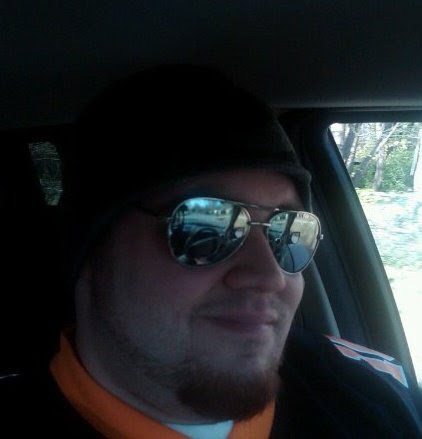
DC Fanboy! Superman is the greatest comic book character of all time. Favorite movies are Man of Steel, Goonies, Back To the Future


